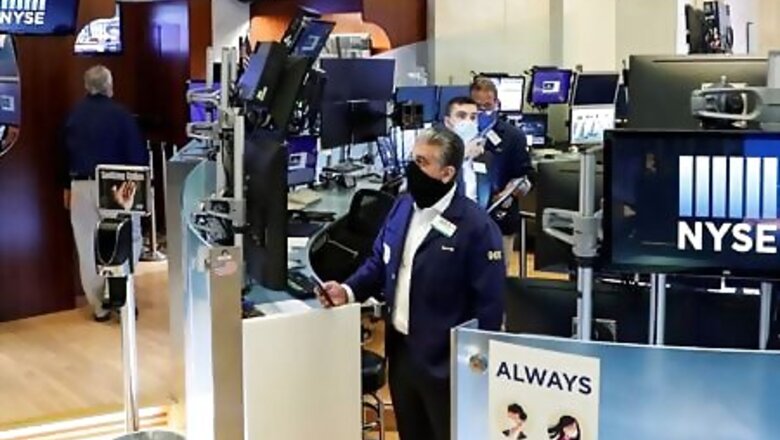
views
The S&P 500 pulled back from near six-month highs on Friday as data showed a sharp slowdown in U.S. employment growth and President Donald Trump cranked up friction with Beijing with moves to ban WeChat and TikTok.
The Labor Department’s closely watched report showed nonfarm payrolls increased by 1.76 million in July. While that was better than the 1.6 million economists surveyed by Reuters had forecast, it was still sharply lower than the record 4.8 million in June.
“Does today’s number imply economic conditions are significantly improved? No, it simply suggests the labor market was static in July, showing no signs of renewed weakness that the increase in COVID-19 cases had threatened,” said Seema Shah, chief strategist at Principal Global Investors in London.
Underlining the disconnect between U.S. economic health and a stimulus-led rally on Wall Street, the Nasdaq closed Thursday above 11,000 for the first time and the S&P 500 finished about 1% below its record high as traders counted on Congress to agree on another coronavirus relief package.
However, Democrats and Trump’s top aides have so far failed to make substantial progress, with differences partly centered around continuing an extra $600-per-week in unemployment benefits.
Meanwhile, Trump late on Thursday unveiled sweeping bans on U.S. transactions with the Chinese owners of messaging app WeChat and video-sharing app TikTok. In response, China said the companies complied with U.S. laws and warned Washington would have to “bear the consequences” of its action.
Shares of WeChat-owner Tencent Holdings Ltd fell as much as 10% in Asia trade, while New York-listed Tencent Music Entertainment Group , which was spun off from Tencent in 2018, fell 4.8% during U.S. hours.
Microsoft Corp , which is seeking to buy TikTok’s U.S. operations, was down 1%.
U.S.-listed Chinese stocks such as Baidu Inc , Alibaba Group Holding Ltd and JD.com Inc fell between 2.0% and 3.5%.
At 9:38 a.m. ET, the Dow Jones Industrial Average was down 121.27 points, or 0.44%, at 27,265.71, the S&P 500 was down 9.47 points, or 0.28%, at 3,339.69, and the Nasdaq Composite was down 29.32 points, or 0.26%, at 11,078.75.
With the second-quarter corporate earnings season largely over, about 82% of S&P 500 companies that have reported so far have beaten dramatically lowered estimates, with earnings on average coming in 22.5% above expectations, the highest on record.
Goldman Sachs Group Inc inched lower as it cut its previously stated quarterly earnings, having set aside more money to pay for its settlement with the Malaysian government over the multi-billion-dollar 1MDB scandal.
T-Mobile US Inc rose 7.8% as it added more-than-expected monthly phone subscribers and said it had overtaken rival AT&T Inc as the second-largest U.S. wireless provider. AT&T dipped 0.5%.
Declining issues outnumbered advancers 2-to-1 on the NYSE and 1.70-to-1 on the Nasdaq.
The S&P index recorded 14 new 52-week highs and no new low, while the Nasdaq recorded 50 new highs and two new lows.
Disclaimer: This post has been auto-published from an agency feed without any modifications to the text and has not been reviewed by an editor


















Comments
0 comment